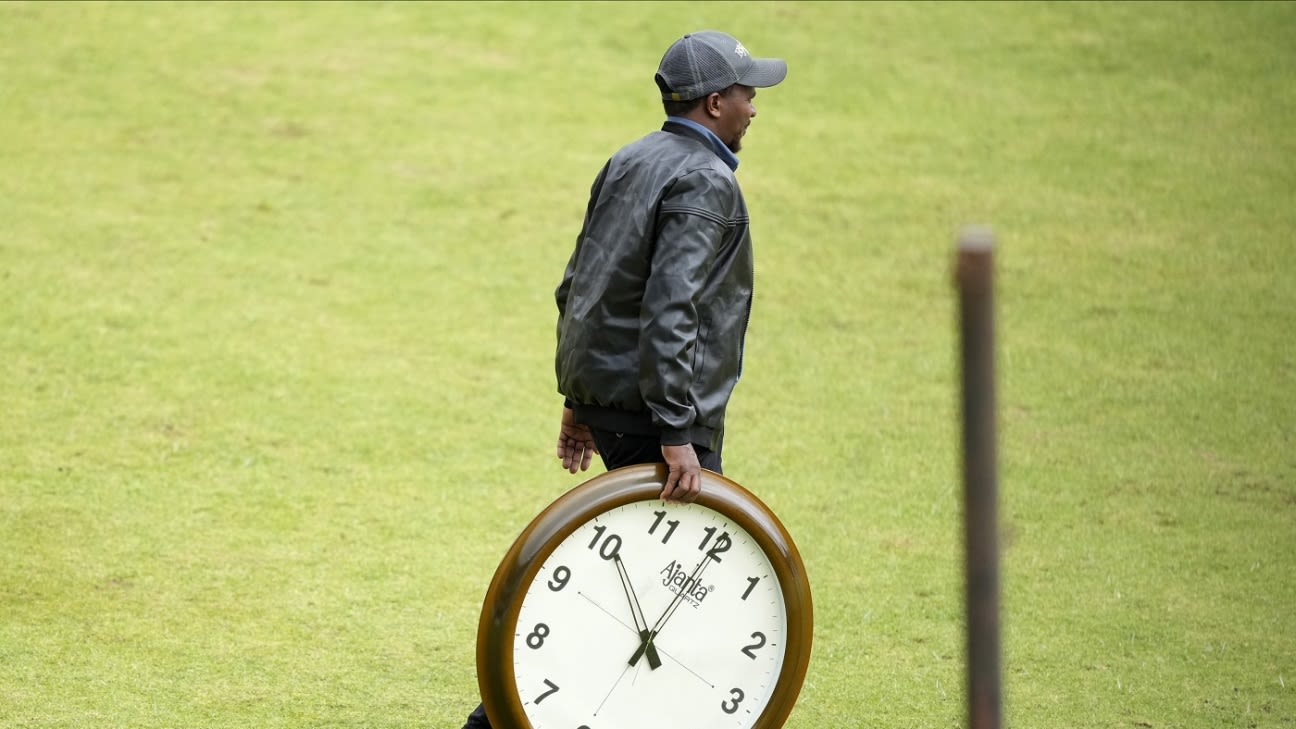[ad_1]
The bowling team will need to be ready to bowl the first ball of their next over within 60 seconds of the previous over being completed. After two warnings, a third default by the bowling side will result in a five-run penalty imposed against them.
The third umpire will start the clock at the completion of an over – the countdown would be displayed on the big screen at the ground, too. In case the batters have called for equipment change, drinks or if there is an injury break, and the 60 seconds are over the fielding time will not be penalised.
In the scenario where the bowler is ready, but the batter is not ready, the match officials will deduct the time allowance from the batting team. For example if the batting team exceeded their allowances by two minutes, and are fielding second, then that additional time will be deducted from the overall time which could potentially lead them incurring both in-game and financial penalties if they fail to finish the overs before the cut-off time.
Stop clocks aimed at speeding up play are not new in sport. In major tennis tournaments, a player gets 25 seconds to get ready to serve between points. The idea of a stop clock in cricket was proposed in 2018 by the MCC’s World Cricket Committee that included Ricky Ponting, Saurav Ganguly and Kumar Sangakkara, among others, to reduce the ‘dead-time’ between overs in international games.
The five-match T20I series between West Indies and England runs from December 13 to December 22, with the sides playing the series opener in Bridgetown, then moving to St George’s for two fixtures and finishing the series with two matches in Tarouba.
[ad_2]
Source link



